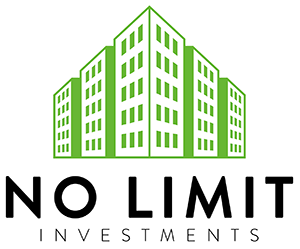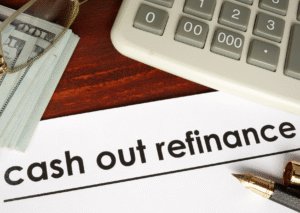How Do Construction Loans Work for Real Estate Investors?
Understanding how construction loans work is the first step toward meeting construction loan requirements with confidence. A construction loan is a short term financing tool used to fund the cost of building a residential or commercial property. Unlike traditional mortgages, the funds are released in stages known as draws. Each draw is released after a lender verifies that a certain phase of construction has been completed.
Construction loans are different because they focus not only on the borrower’s qualifications but also on the feasibility of the project. Lenders want to be sure that the property can be completed on time, within budget, and with a reasonable path toward long term value. This is why real estate investors often combine construction loans with other investment tools, such as fix and flip loans, buy and hold mortgages, or cash out refinance options available through trusted financing partners like No Limit Investments.
What Financial Documents Do Lenders Commonly Require?
Construction loan requirements usually begin with financial documentation. Lenders want to see whether the borrower can responsibly handle project costs and unexpected setbacks. Investors should expect to prepare the following documents:
- Bank statements
- Proof of cash reserves
- Personal and business tax returns
- A detailed project budget
- A project timeline with clear milestones
- Contractor bids and credentials
Some lenders may request additional information, such as evidence of previous real estate projects or proof of stable income. This is where supplemental financial services can be helpful. Investors who use business credit facilities or credit and debt advisory services can strengthen their financial profile and improve their positioning when applying for a construction loan.
Why Is Creditworthiness an Important Part of Construction Loan Requirements?
A borrower’s creditworthiness is one of the most important factors lenders evaluate. Construction projects involve uncertainty, and lenders want reassurance that the borrower can manage funds responsibly throughout the build.
Creditworthiness typically includes:
- Credit score
- Debt-to-income ratio
- History of on-time payments
- Length of credit history
- Types of credit accounts
Real estate investors who need help improving their credit profile can benefit from tailored advisory tools, such as the credit and debt advisory services offered by No Limit Investments. These solutions help borrowers understand their credit strengths and weaknesses, prepare financially, and ultimately increase their likelihood of loan approval.
How Does the Property Itself Influence Construction Loan Approval?
Construction loan requirements extend beyond personal finances. The property and project also undergo an intensive evaluation. Lenders want to ensure that the project has strong value potential and aligns with local building standards.
Lenders will look closely at:
- Land value
- Zoning restrictions
- Proposed architectural plans
- Estimated after construction value
- Contractor experience and track record
- Comparable market values in the area
Investors working with real estate financing solutions, such as those at No Limit Investments, can obtain guidance on how to structure their projects with stronger financial foundations. This can improve loan approval odds and help investors plan their long term investment strategy more effectively.
Which Additional Costs Should Real Estate Investors Expect When Meeting Construction Loan Requirements?
Construction loans have more cost layers than a conventional mortgage. Investors should prepare for expenses that appear throughout the project.
Typical costs include:
- Origination fees
- Closing costs
- Appraisal fees
- Inspection fees (per draw)
- Interest-only monthly payments
- Contingency reserves
Some investors pair construction loans with growth and development services to better navigate long term financial planning. Others use BRRRR financing or DSCR loans once the construction is complete to transition from a short term loan into a stable long term mortgage. Planning these transitions early helps investors avoid financial strain and strengthens their investment timeline.
How Does Experience Affect Construction Loan Approval?
Experience plays an important role in construction loan requirements. Lenders are more confident when borrowers have a track record in real estate development or renovations. Even investors without extensive experience can still qualify, especially when working with a strong contractor team.
Experience may include:
- Previous construction projects
- Successful fix and flip deals
- Experience managing rentals
- Contractor or builder partnerships
- Knowledge of local real estate markets
Many investors build experience and credibility through investment tools such as new construction loans, fix and flip loans, or BRRRR financing. These stepping stones help them learn property management, budgeting, and market analysis, which ultimately support stronger construction loan applications.
What Steps Can Investors Take to Strengthen Their Construction Loan Application?
There are practical ways to strengthen a construction loan application, even if an investor is new. The goal is to show lenders that the investor is organized, capable, and financially prepared.
Investors should consider the following steps:
- Build a strong credit profile with professional advisory support
- Prepare well documented financial records
- Obtain detailed contractor bids and a clear construction schedule
- Strengthen liquidity through savings or creative financing
- Present a realistic exit strategy
- Work with reputable real estate financing providers
Investors who partner with financing firms offering multiple tools, such as business credit facilities, DSCR loans, cash out refinance options, and buy and hold mortgages, are often better positioned to meet lender expectations.
How Can Real Estate Investors Use Construction Loans to Scale Their Portfolio?
Construction loans are more than a funding tool. They are a pathway to expanding a long term real estate portfolio. Investors often use construction projects to create new rental properties, build equity, or produce cash flow.
Once construction is complete, investors can transition to long term financing strategies such as:
- Buy and hold mortgages for rental income
- DSCR loans for cash flow based qualification
- Cash out refinance to access built equity
- BRRRR financing for repeat investing
Each of these loan types is available through No Limit Investments, making it easier for investors to continue scaling without unnecessary delays. Their real estate financing solutions help both new and experienced investors structure projects in a way that supports long term growth, financial security, and portfolio stability.
Why Should Investors Consider Working with No Limit Investments for Construction Loan Support?

Real estate investors succeed when they have reliable guidance and flexible financing options. No Limit Investments provides construction loan guidance along with a full range of additional services that support the entire investment journey. Whether an investor needs new construction loans, fix and flip loans, BRRRR financing, DSCR loans, cash out refinance options, or long term buy and hold mortgages, the company offers personalized solutions that help investors move forward with clarity and confidence.
Investors who want strategic, structured, and supportive financing can explore services at No Limit Investments to get started with a team that understands real estate growth.
Final Thoughts
Construction loan requirements may seem complicated at first, but with the right knowledge and preparation, real estate investors can navigate them successfully. Understanding financial documentation, improving creditworthiness, evaluating property details, and preparing for additional costs all contribute to stronger loan applications. Construction loans also provide an opportunity to scale a real estate portfolio when paired with long term financing options such as DSCR loans, buy and hold mortgages, and cash out refinance strategies. With tools and support from No Limit Investments, investors can confidently move from planning to building and ultimately toward long term financial success.
Works Cited
Consumer Financial Protection Bureau. “Construction Loans.” Consumerfinance.gov, https://www.consumerfinance.gov.
Federal Housing Administration. “Single Family Housing Policy Handbook.” Hud.gov, U.S. Department of Housing and Urban Development.
United States Census Bureau. “New Residential Construction.” Census.gov, https://www.census.gov.
U.S. Small Business Administration. “Prepare Financial Documents.” SBA.gov, https://www.sba.gov.
National Association of Home Builders. “Construction and Economic Data.” NAHB.org, https://www.nahb.org
Frequently Asked Questions
- What documents do I need to apply for a construction loan?
Most lenders require bank statements, tax returns, a detailed project budget, contractor bids, and a clear construction timeline. These documents help lenders verify the financial stability of the borrower and the feasibility of the project.
- How does my credit score affect construction loan approval?
Credit score is an important part of construction loan requirements. A strong credit profile helps lenders feel confident about funding your project. Investors can improve their credit readiness by using credit and debt advisory services to strengthen financial standing before applying.
- Can new investors qualify for construction loans?
Yes. Even if an investor has limited experience, a well-prepared plan, reliable contractor team, and strong financial documentation can support loan approval. Working with real estate financing solutions can also help new investors structure their projects properly.
- What costs should I expect when taking a construction loan?
Common costs include appraisal fees, inspection fees, origination charges, closing costs, and interest-only payments during construction. Investors should also prepare for a contingency budget to cover unexpected expenses that may occur during the build.
- How can a construction loan help me scale my real estate portfolio?
Construction loans allow investors to create new properties that can later be financed through long term options like buy and hold mortgages, DSCR loans, BRRRR financing, or cash out refinance strategies. These transitions help investors build cash flow, equity, and long term growth.







